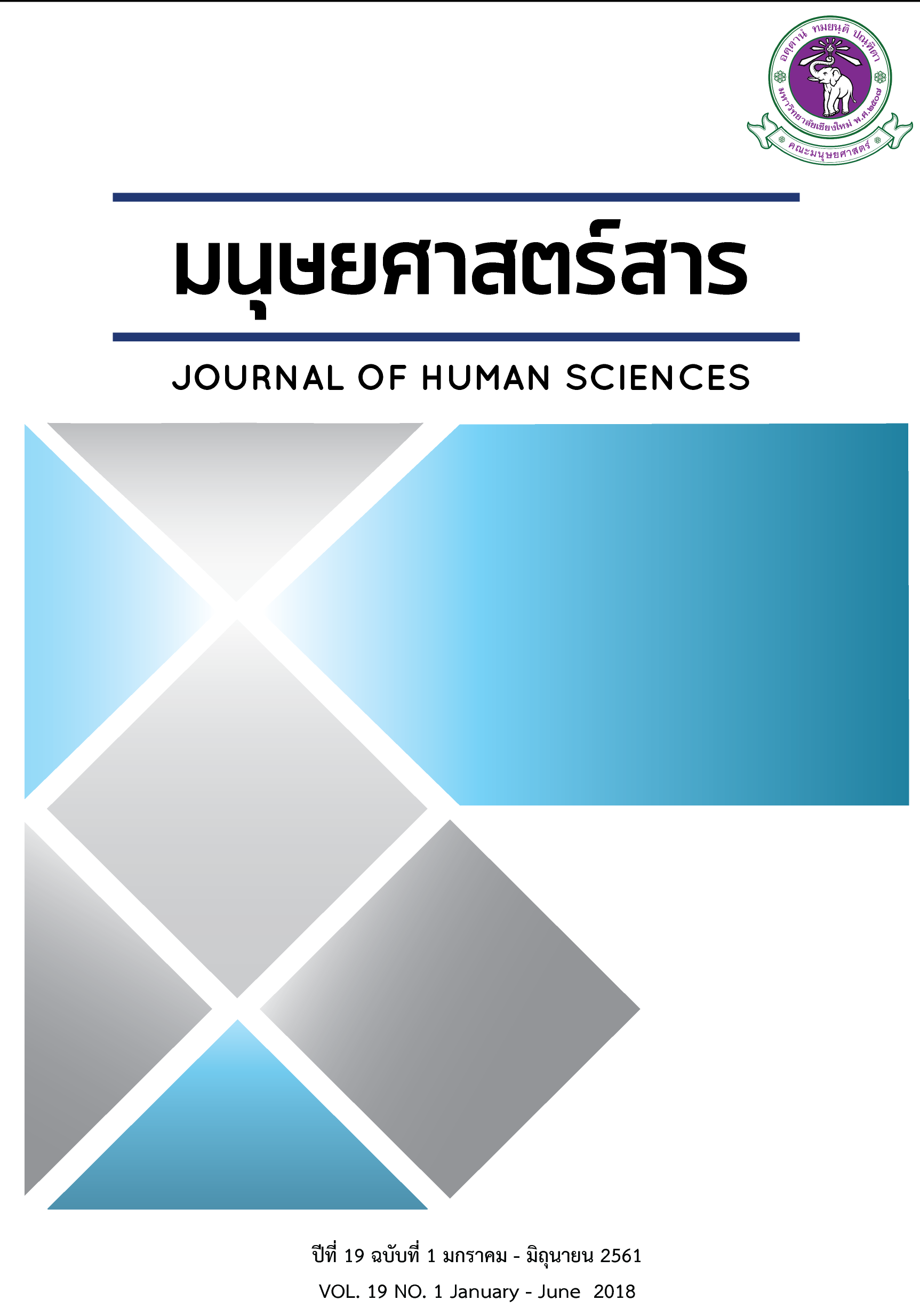การจัดการความรู้เพื่อพัฒนาพื้นที่สูงอย่างยั่งยืนของครูในศูนย์การเรียนรู้ชุมชนชาวไทยภูเขา จังหวัดเชียงใหม่
Main Article Content
บทคัดย่อ
การวิจัยนี้มีวัตถุประสงค์เพื่อศึกษาบริบทการจัดการเรียนรู้และแนวทางการจัดการความรู้เพื่อพัฒนาพื้นที่สูงอย่างยั่งยืนของครูในศูนย์การเรียนรู้ชุมชนชาวไทยภูเขาในจังหวัดเชียงใหม่ โดยใช้วิธีวิจัยเชิงคุณภาพ กลุ่มเป้าหมายที่ให้ข้อมูลหลักได้จากการเจาะจงครูศูนย์การเรียนรู้ในพื้นที่สูงซึ่งเป็นพื้นที่พัฒนาโครงการหลวงและมีศูนย์การเรียนรู้ชุมชนชาวไทยภูเขาที่เข้าไปจัดการเรียนการสอนระดับการศึกษาขั้นพื้นฐาน จำนวน 17 คน เครื่องมือที่ใช้ในการวิจัยมีแบบสัมภาษณ์เชิงลึกและแบบบันทึกการสนทนากลุ่มโดยใช้วิธีการวิเคราะห์เนื้อหาจากผลการวิจัย พบว่า บริบทการจัดการเรียนรู้เพื่อพัฒนาพื้นที่สูงอย่างยั่งยืนของครูได้มีการกระบวนจัดการการเรียนรู้เชิงพื้นที่โดยสำรวจและรวบรวมข้อมูลหมู่บ้านเพื่อเป็นองค์ความรู้ในการจัดการเรียนรู้ให้กับผู้เรียนก่อนวัยเรียน และผู้เรียนการศึกษาขั้นพื้นฐาน ผู้ไม่รู้หนังสือ การพัฒนาอาชีพให้กลุ่มผู้สนใจในชุมชน การพัฒนาทักษะชีวิต โดยใช้วิธีการประสานงานกับผู้นำชุมชน การสร้างเครือข่ายในท้องถิ่น การมีส่วนร่วมประชุมกับชุมชน และการแลกเปลี่ยนข้อมูลข่าวสารเพื่อให้คนชุมชนได้รับรู้การเปลี่ยนแปลงจากภายนอก ในส่วนการใช้องค์ความรู้เชิงพื้นที่ของครูที่นำองค์ความรู้ไปดำเนินการจนเกิดแนวปฏิบัติที่ดีได้แก่ ชุมชนมีแผนพัฒนาแบบมีส่วนร่วม ชุมชนมีเครือข่ายการอนุรักษ์ทรัพยากรธรรมชาติและสิ่งแวดล้อม พลเมืองมีจิตสำนึกท้องถิ่น ผลของการพัฒนาพื้นที่สูงอย่างยั่งยืน คือ ชุมชนมีพลังเข้มแข็งในการอนุรักษ์ประเพณี สืบทอดวัฒนธรรมชนเผ่า จัดตั้งกลุ่มสมุนไพรพื้นบ้านเพื่อการดูแลสุขภาพและอนามัยของชุมชน มีกลุ่มพัฒนาผลิตภัณฑ์ท้องถิ่น สร้างปฏิญญาและข้อบังคับของชุมชนเพื่ออยู่ร่วมกันในชุมชนอย่างสันติ สำหรับแนวทางการจัดการความรู้เพื่อพัฒนาพื้นที่สูงอย่างยั่งยืนของครูศูนย์การเรียนรู้ชุมชนมี 5องค์ประกอบ คือ FPCIL ได้แก่ 1) การอำนวยความสะดวก (facilitator: F) 2) การจัดทำแผนแผนชุมชนแบบมีส่วนร่วม (participatory assessment and planning: P) 3) การเพิ่มคุณค่าทุนชุมชน (community capital value added: C) 4) การสร้างนวัตกรรมชุดความรู้(innovation of knowledge: I) และ 5) การถอดบทเรียน (lesson-learned: L)


